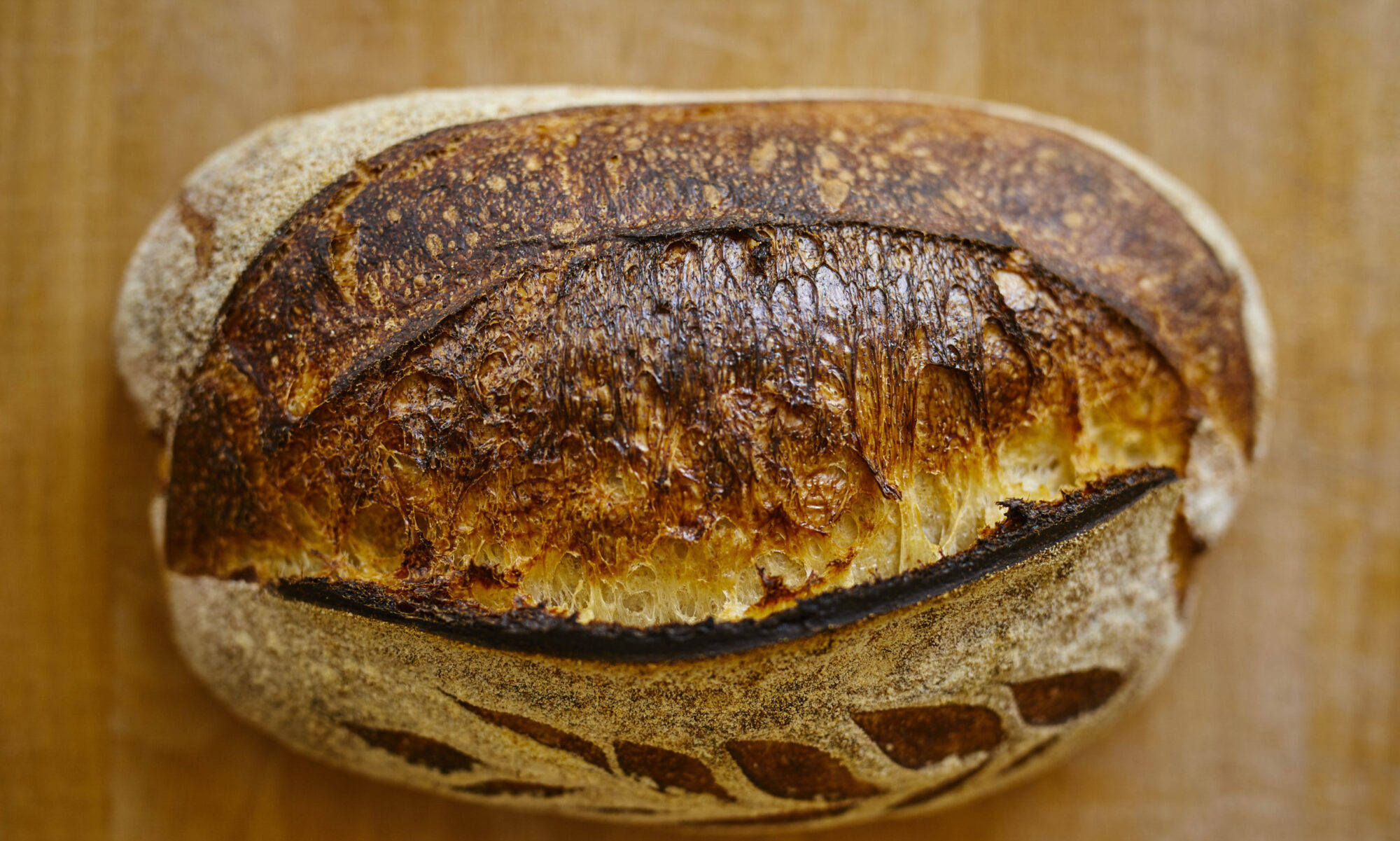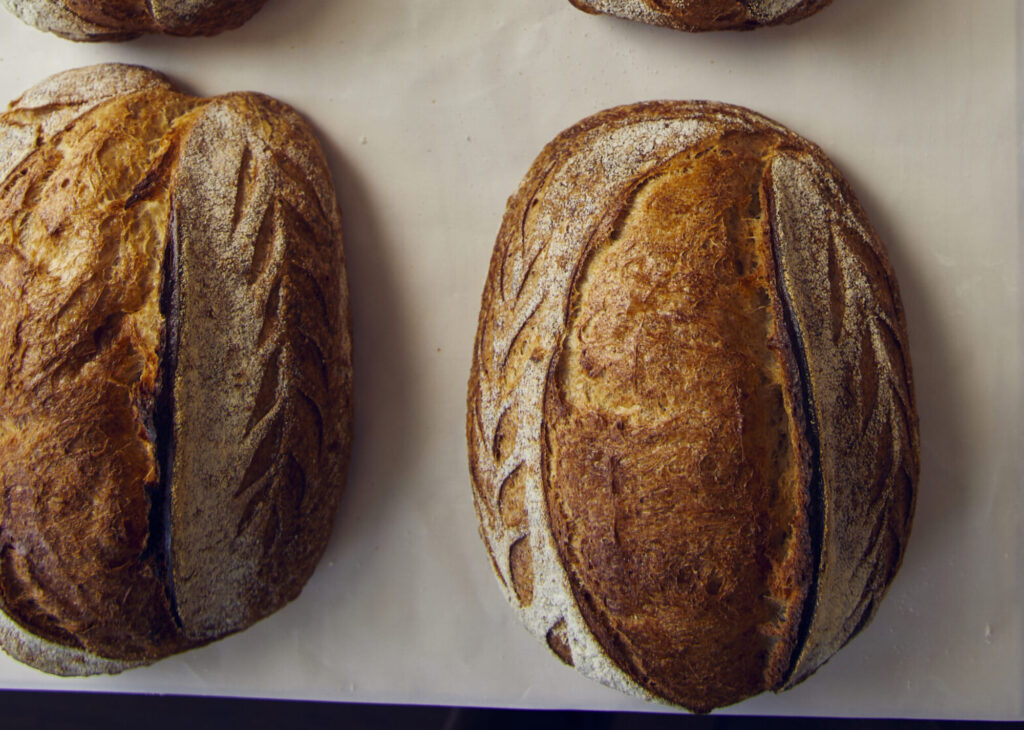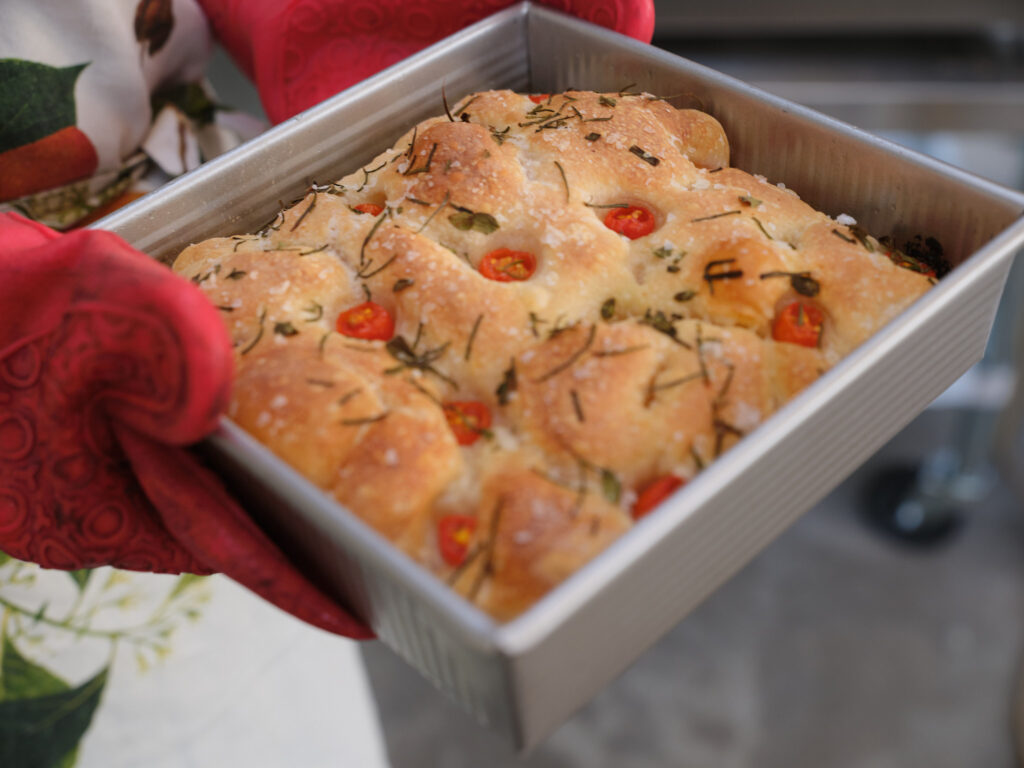Sourdough bread is an irresistible delight, cherished for its unique tangy flavor, chewy crust, and soft, airy interior that reflects the dedication and craft of artisan baking. Beyond its delectable taste, sourdough bread boasts several health benefits that make it a wholesome choice for bread enthusiasts:
- Natural Fermentation: Sourdough undergoes a natural fermentation process, where wild yeast and lactic acid bacteria break down gluten and phytic acid, aiding in better digestion and nutrient absorption.
- Gut-Friendly Probiotics: The prolonged fermentation of sourdough results in the proliferation of beneficial bacteria, contributing to a healthy gut microbiome and potentially enhancing overall digestive well-being.
- Lower Glycemic Index: The fermentation process reduces the bread’s glycemic index, leading to a slower rise in blood sugar levels, making sourdough a favorable option for individuals concerned about blood sugar control.
- Nutrient Availability: Sourdough’s fermentation enhances the availability of certain nutrients, such as B-vitamins and minerals, promoting a more nutrient-dense bread that aligns with a balanced and health-conscious lifestyle.
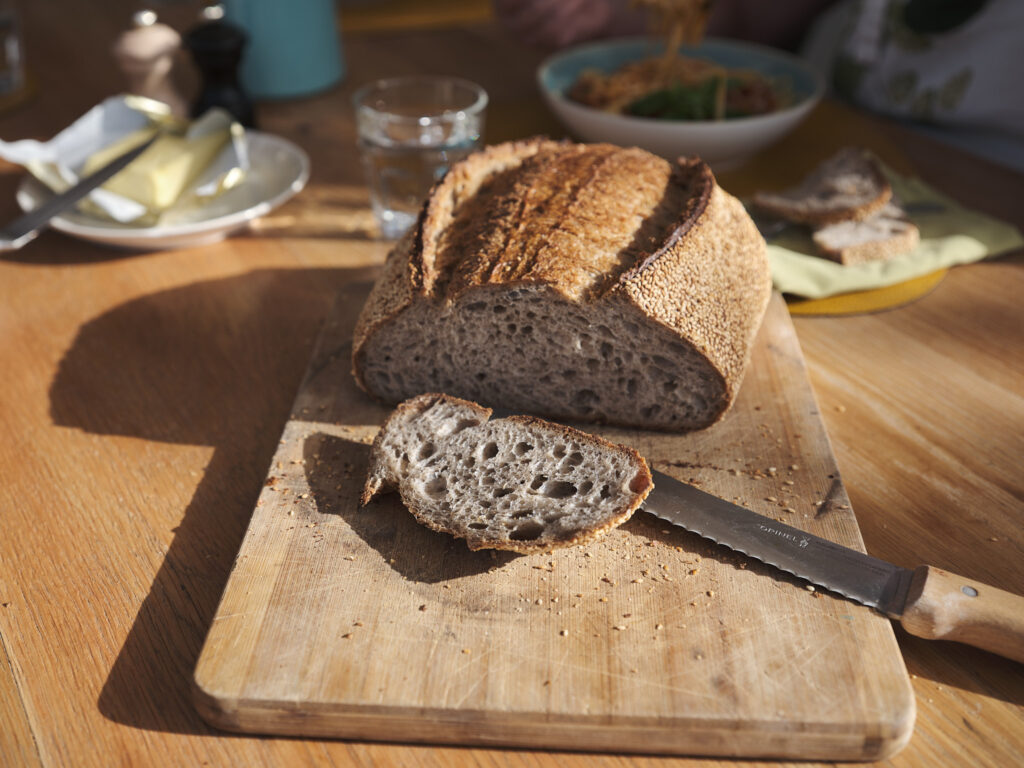
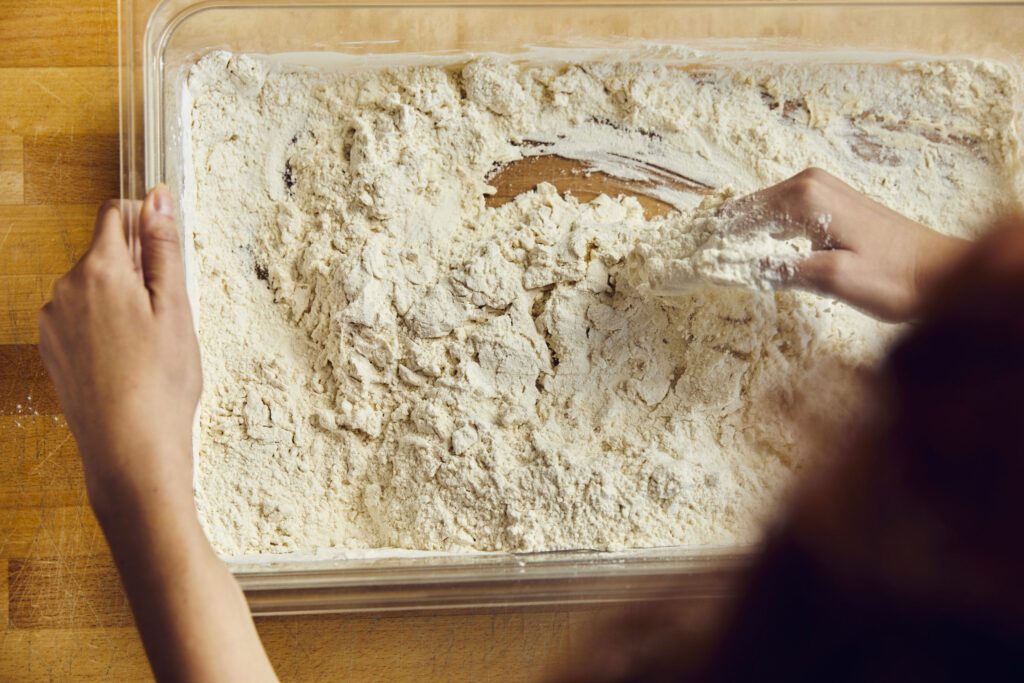
Handmade with wild yeast sourdough, a process that takes three days from start to finish and yields incredible flavor from the slow fermentation of the dough.
Why Natural Leaven?
Wild yeast leaven, also known as a sourdough starter, is a natural mixture of yeast and bacteria that is used as a leavening agent in bread baking. Unlike commercial yeast, which is a single strain of yeast, wild yeast leaven is a diverse ecosystem of microorganisms that can impart unique flavors and characteristics to the bread. Wild yeast leaven is typically made by mixing flour and water and allowing it to ferment at room temperature for several days, during which time the yeast and bacteria in the mixture will begin to multiply and consume the sugars in the flour. As the mixture ferments, it will become more acidic and develop a tangy “sour” flavor, which is a hallmark of sourdough bread.
In addition to its unique flavor profile, wild yeast leaven offers health benefits. Because the fermentation process in sourdough bread is longer and slower than in bread made with commercial yeast, it allows the microorganisms in the starter to break down more of the starches and gluten in the dough. This can make the bread easier to digest and reduce the spike in blood sugar that can occur after eating other types of bread. Additionally, the fermentation process can increase the availability of certain nutrients in the bread, such as iron and zinc. Overall, using wild yeast leaven in bread baking can result in a flavorful and healthier loaf of bread.
MADE IN A HOME KITCHEN
Permit #PR135115
County of Orange, California
